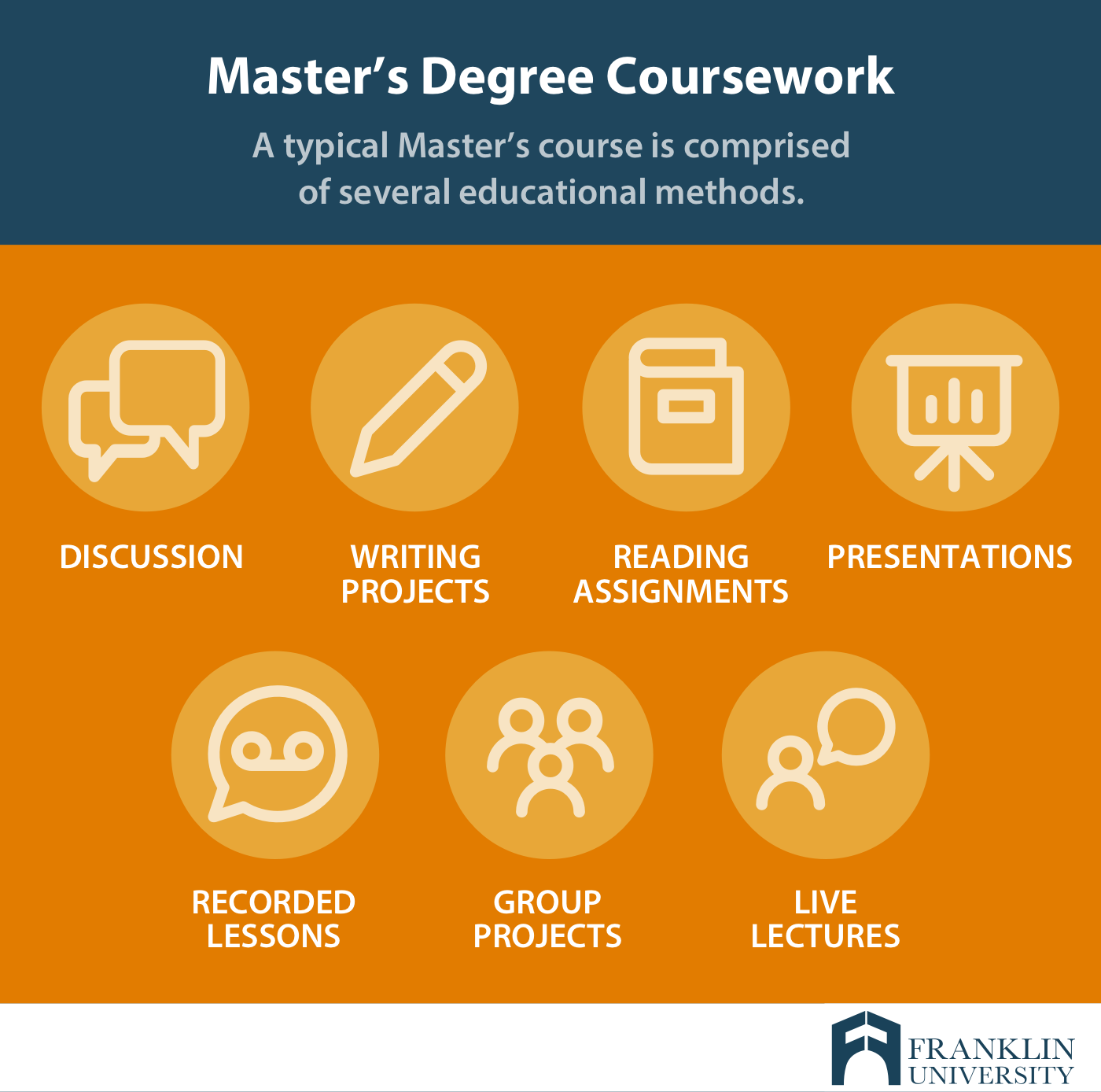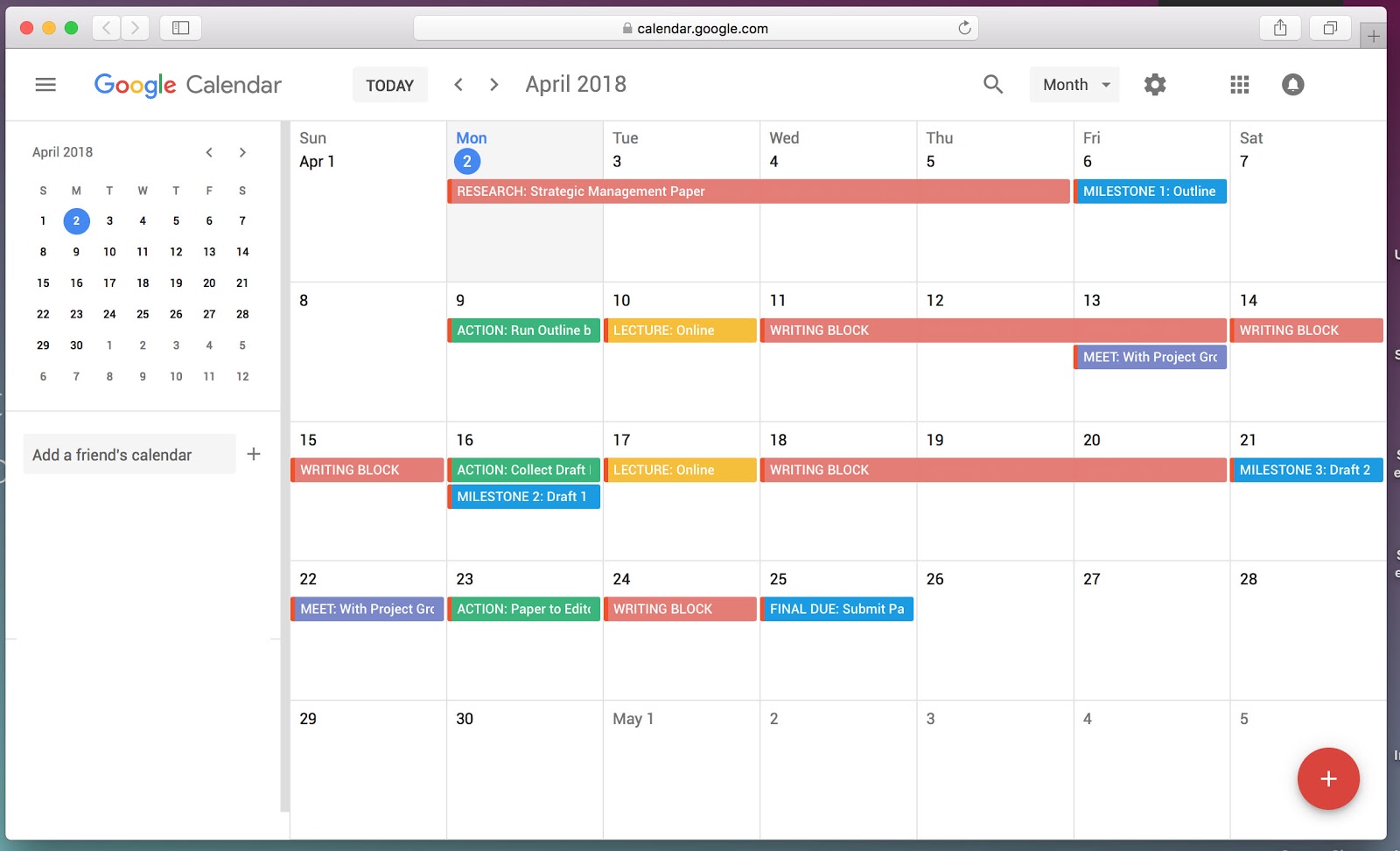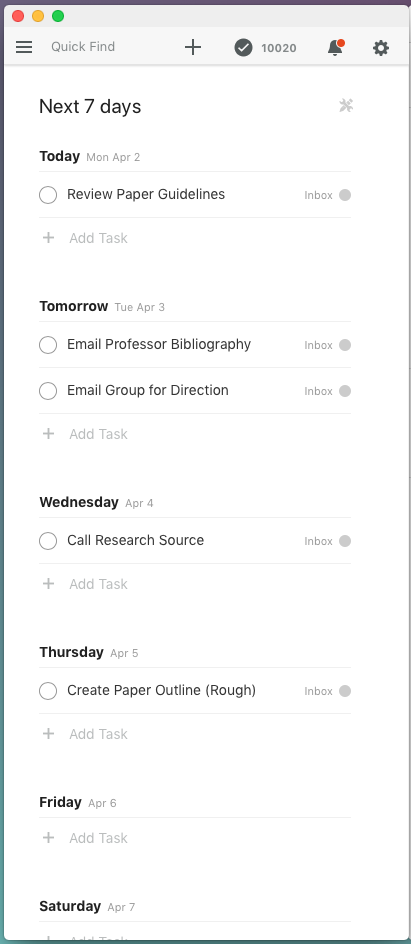Request Information
We're Sorry
There was an unexpected error with the form (your web browser was unable to retrieve some required data from our servers). This kind of error may occur if you have temporarily lost your internet connection. If you're able to verify that your internet connection is stable and the error persists, the Franklin University Help Desk is available to assist you at helpdesk@franklin.edu, 614.947.6682 (local), or 1.866.435.7006 (toll free).
Just a moment while we process your submission.

How Graduate School Works: An Insider's Guide
When you’re applying for a graduate program, you’ll have a lot of financial and tactical questions on your mind, like cost, credits, and time to completion. But you’ll also have some really practical questions.
The questions we get the most include:
- What will the classes be like and who will be in them?
- What type of work will I be required to do?
- What will my life be like when I’m earning my Master’s?
- What will working with others in the program be like?
- What should I know before the first day?
Along with the academic, reading, and research challenges that face a typical Master’s degree student, there is the simple challenge that you can’t always know what’s around the corner.
You can ease that uncertainty by getting some insider tips on graduate school to help guide you smoothly into and through your program.
Consider this the Cliff Notes guide from someone who’s been there
What Will the Classes Be Like?
The first fear of grad school many people have is the unknown of what to expect on the first day.
What will a typical class structure look like? Will you be put on the spot? And what about the other people in the room - how well will you get along with your peers?
And, while every program is different, there are some common things to expect.
The In-Person Environment
At the Master’s level, most courses will have 10-20 students. This leads to a fair amount of interaction with your professor and your peers.
Typically, the course will include a variety of methods from group discussions to presentations to writing assignments.

Every course is different in terms of the amount of time spent on lecture and discussion. You should expect a mix of the two, because all schools recognize the value of interpersonal contributions and debate. It’s likely the discussion will feel like just that - a discussion between peers rather than a forced answer from the back row of a lecture hall. Remember, you will be surrounding by people who, like yourself, want to advance in their understanding of the subject at hand.
This is in contrast to undergrad classes, which can be dramatically larger and is often focused more on a lecture technique.
The Online Environment
Online coursework continues to grow in availability.
The upside is students who have more flexibility in their schedule and an expanse of animated, video, and interactive material to more fully engage them. The downside is a decrease in the high-touch, high-personal environment that happens in person - but online learning can include a multitude of dynamic elements that it makes up for it.
For those who have never taken an online course, there are discussion boards, online text or video chats, lecture video replay, peer-to-peer interactions, and student-to-faculty sharing opportunities than in he classroom. You can access instructors immediately through chat, discussion thread, or email, without having to wait for office hours.
What matters most when choosing a master’s program? Compare features, benefits and cost to find the right school for you.
What Will Life Be Like While I’m Pursuing My Degree?
Yes, your life will be busy during this period of time.
A Master’s degree program carries a significantly heavier effort than a Bachelor’s course of study. You may have several hours of work to accomplish each day, on average. Even with a light course load, you may find yourself spending 15 or 20 hours a week on your studies.
To fit such a workload into your life, you’ll need to plan and balance carefully.
By assembling a time summary for yourself in week one, you can plan the rest of your semester by blocking off time as needed. For example, if a professor tells you that the coming week will have a lot of reading, then you’ll know you need to set aside seven hours instead of five.
4 Keys To Getting the Most Out of This Time
Your academic commitments will soon require much of your time. The following tips will help you stay focused on productivity, organization, and healthy habits.
- Identify your sweet zones. Learn when you work more effectively and efficiently. For instance, you may find that early mornings are better for writing while evenings are better for reading. Or, vice versa. Not sure where to start? Learn how productivity guru Michael Hyatt sets himself up for a productive day.
- Establish effective time management skills. Know how long it will take you to complete a task, and reserve time on your calendar for those activities. Make appointments with yourself to complete important milestones—and keep those appointments.

- Make time for the important things. You can’t always be head down on coursework. Don’t neglect social times - meet with friends, spend time with family, and enjoy fun activities. Those things can prove to be a great support system.
- Keep up-to-date to-do lists. Use an app like Todoist, or old-fashioned pen and paper, to keep a list of important items you need to accomplish, both in your master’s work and personal life. This little trick can help you stay organized with less free time.

PRO TIP: This won’t always be fun. There’s a reason that most people don’t get a Master’s degree. To ensure you’re prepared for what’s ahead, do some soul-searching. Dig down deep and think about what you want to do and what you love to do - and ensure the Master’s program aligns with those things.
What Will You Need to Know Before the First Day?
One thing to remember about your first few times on campus or online: your admissions officer is probably your best resource as you get on board. If you have questions, just ask. Admissions officers either know the answer or will direct you to someone who does.
- Learn the Campus. Some schools that are focused on in-person classes will have an in-person orientation and campus tour. But these days, more and more coursework is being completed online, including some programs that are 100% online. That’s why you might even see some evidence of online open houses that will welcome you and orient you right from the comfort of home.
- Familiarize Yourself with the System for Online Work. A program that requires any amount of online work will typically have some sort of secure software for you to log in, learn, perform tasks or homework, and submit your work. At Franklin University, for example, we use BlueQuill, a custom learning system.
- Identify Where to Go with Questions. For enrollment questions, the best person to ask will be someone in the admissions department. If you have questions about your course work, contact the instructor or even a peer in the class. Some schools may have a financial aid officer, a student liaison, or a concierge—depending on what language they use for their staff positions.
How Will You Work With Others?
In a Master’s degree program, it's important to work with the people around you.
Often, you’ll be assigned group projects that must be presented back to the larger group. Working effectively in these groups, while balancing everyone’s schedules and personalities, can seem daunting at first. But it doesn’t have to be.
To get the most from working in a group of students, approach the group assignment while “turning up” your skills in these areas:
- Communication - Who is doing what? When does it need to be done? How will it be delivered? Make sure everyone understands the group goals and tasks.
- Collaboration - What is the best way to divide and conquer? Who is great at what, and how can the group leverage each skillset at the table?
- Specialization - Is everyone in your group from the same major? Maybe there is someone with a financial educational goal and someone with a marketing undergraduate degree; let each one handle an area of the project that suits their strengths.
A Word of Advice
Earning your Master’s is a grind. It’s challenging work that requires much from you.
According to Sara Burris, Associate Director of Graduate Admissions at Franklin University, “For a Master’s degree program, you have to ask yourself if you’re passionate about your program.”
Burris speaks from experience. She’s helped hundreds of students find their way into the right programs, and she’s also seen students who chose the wrong one.
“Six or seven classes in the program, you're going to run into a challenge. It might be a challenge at work, like your boss moves you to an office on the other side of town or completely changes the hours of your shift. It might be a challenge in life, like your kid gets really sick. And in some cases, a major change like that will derail students’ efforts and they’ll drop out. But not the passionate ones. If you have a passion for the program you’re in, you'll stick with it. So choose your passion.”
Bring On the Adventure
There’s no time like the present to take what you know and translate it into action. Now that you’ve heard an insider’s view on navigating into a Master’s program, take that new confidence and start your journey.





